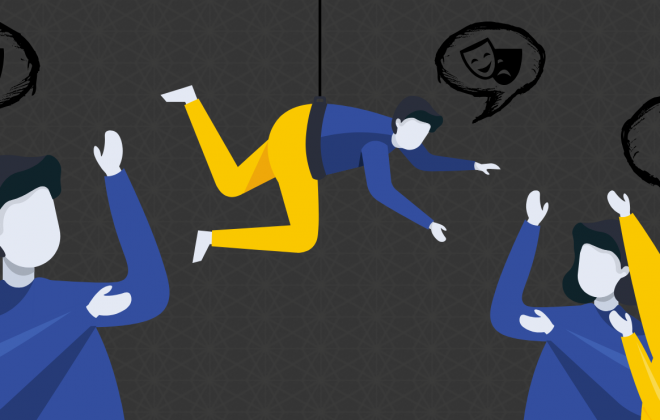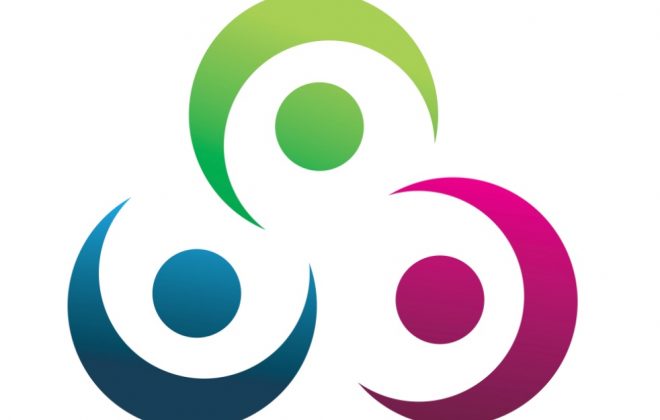
Recovering from Perfectionism and Learning to Fall Forward
“Stop trying to be so perfect.”
That was the first piece of feedback I received in improv class, and it hit me deep in my soul. I remember nodding while I replied to my teacher, “That seems like a timely piece of life advice.”
Recovering from perfectionism has been a forefront theme in my life since that moment.
I believe the origins stem from an achievement focused childhood, like “perfect attendance” and “getting all A’s.” Perfectionism was deepened playing sports, where a mistake could cost the game. I was a goalie in high school so when I made a mistake my entire team felt it. My first job out of college I was a 911 dispatcher, and there, even the tiniest of errors could literally be a life or death situation for civilians and/or my coworkers and friends.
What started out as striving for greatness turned into a crippling fear of messing up. As my career progressed this life-or-death view of mistakes started to have a detrimental impact on my professional and emotional development. Criticism seemed like a personal attack. I was also closed off and I let few people in. My father was dying while I was working at Target and I was so closed off that the first time I shared anything was the day after we gave him Last Rights.
Perfectionism has made my life hard and has made me hard to work with.
My thoughts go to sitting around a conference room table getting ready to review videos from an investigation I had conducted the week before. For some perspective, I was sitting in a room with the best investigative interviewers in the business. I worked for the top interview and interrogation training firm in the world. It was not easy to have one of the people who invented the technique, critique my performance. I cried through most of that feedback session. Like streaming tears. One of the co-founders of that training firm provided powerful words of comfort. He said to me, “I have messed up more times than you have even tried.” It was a concept I could understand rationally at the time, but not emotionally. I just wanted to hurry up and arrive as perfect. Now I can feel that truth.
Improv has been my most powerful practice against perfectionism. In improv one of the more common sayings is “there are no mistakes, only gifts.” Improv gives me a safe space to mess up. It is a low stakes environment to embrace imperfection.
Embracing imperfection is a foundational principle of Empathic Workplace and Improv Therapy Group. I am grateful to have three business partners who are comfortable with this concept. They balance me out well and they teach me to “fall forward.” We wouldn’t have a website if it wasn’t for them. I would still be pushing back the publish date trying to make it more perfect. Falling forward helps to remind me that we will continue to create, continue to evaluate, and continue to learn.
A few example modules include:
- Magic Words: Communication and “Yes, And”
- On the Spot: Public Speaking and Performance Anxiety/Stage Fright
- Heal Thyself: Humor and Self Care
- Let Go: Stress Reduction Through Improv
- Us is More: Group Mind and Team-Building
- Feelin’ It: Emotional Intelligence and Empathy
- and many more . . .
Related Posts
Categories
- Advocacy (1)
- Articulate (2)
- From the Advisory Board (1)
- Improv (13)
- Improv and Children (6)
- Improv Exercises (28)
- Improv Life Lessons (23)
- Interviews (2)
- ITG Blog (29)
- ITG Games and Exercises (26)
- ITG Podcasts (3)
- Look Who Gets It (10)
- Meditation (1)
- Neuroplasticity (5)
- Self-Care (9)
- Storytelling (3)
- Teamwork (6)
- Therapy (5)
- Yes, and (13)





